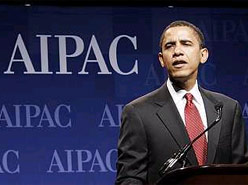
In
light of ongoing global negotiations on pressing environmental issues,
it’s time for efforts to curtail the excessive influence of
multinational corporations over public policy to be strengthened and
scaled up at all levels – especially at the United Nations.
The
corporate capture of policymaking has dire implications for how we
achieve sustainable development in the 21st century, and it must be
strongly opposed in the coming years as deliberations on climate change
and sustainable development reach important conclusions. Private sector
influence over politics at the national level is already widely recognised,
but the extent to which powerful industries are able to influence
global negotiations on some of the world’s most pressing problems is far
less reported by the media or discussed in the public sphere.
continue reading >>http://www.globalresearch.ca/the-green-economy-vs-the-greed-economy-moving-beyond-the-corporate-vision-of-sustainability/5367528
In March 2006, the London Review of Books published a path-breaking essay on “The Israel Lobby” by University of Chicago political scientist John Mearsheimer and Harvard’s Stephen Walt. The two then published a book the following year, “The Israel Lobby and U.S. Foreign Policy.” They argued that a loose coalition – including leading journalists and media outlets, neo-conservatives, Christian Zionists, and the American Israel Public Affairs Committee (AIPAC) – held a “stranglehold” on U.S. policy in the Middle East and on any public discussion of it.
The mud-slinging that followed confirmed their argument, as the ever watchful Philip Weiss
noted at the time. Some supporters of Israel compared the authors to
Neo-Nazis and grubby Jew-baiters. The Anti-Defamation League called
their argument “a classical conspiratorial anti-Semitics analysis
invoking the canards of Jewish power and Jewish control.” And Harvard
Law professor Alan Dershowitz, that paragon of even-handed objectivity,
decreed that the two men had “destroyed their professional reputations.”
The same mud-slingers still call their political foes
anti-Semites, which drains the word of all meaning – a dangerously
short-sighted reaction given the resurgence of neo-Nazis
on the streets of Paris, as I reported last week. But the Israel
Lobby’s stranglehold on Washington has visibly weakened, thanks in good
measure to the bravery of Mearsheimer and Walt. Courage is indeed
contagious.
Faced with the outpouring of antiwar sentiment, Obama first said he would leave the decision to a vote in Congress and then made a deal with Russia to destroy Assad’s chemical weapons. The deal stinks. According to the Obama administration, Assad is dragging his feet and has reportedly shipped out of the county only 4% of his most dangerous chemical weapons, the Priority One chemicals that he was supposed to remove by the end of 2013. But with his fellow Americans weary of endless lies about endless war, Obama has given no indication that he will put military intervention back on the table or that it would rid Syria of chemical weapons if he went to war, whether limited or all-out.
The lesson seems clear. Too many lies and too many military threats make it difficult for Obama to use force even if he could make a good case for it, which he cannot, and who would now believe him if he could? This will not stop the Israel Lobby from jumping in whenever they can. Rupert Murdoch’s Sunday Times has just done that with a report – datelined Tel Aviv – accusing Assad of “stockpiling advanced weaponry, including chemical and biological arms, in the heartland of his Alawite sect as an insurance policy in case his country is eventually partitioned.”
To punctuate the report, the article confirms that last week Israeli F15s destroyed a missile depot at Jableh near Latakia, which is in the Alawite enclave. Earlier reports of the attack appeared in Lebanese media.
Syria’s civil war continues on its tragic path, and not even Washington’s “humanitarian warriors” openly call for U.S. military intervention. But the big fight here is that Obama’s stand-down on Syria led to negotiations with the Iranians over their nuclear program, which the Israel Lobby is doing everything it can to scuttle. They came close to succeeding. They still might. At one point, they looked as if they had enough senators in their pocket to pass a bill enacting new sanctions against Iran, which could have made negotiations impossible.
Once again, progressive organizers mobilized the largest outpouring of public opinion many Congressional staffers had ever seen, and – believe it or not – Obama stood firm and hit hard. “If certain members of Congress want the United States to take military action, they should be up front with the American public and say so,” said a spokeswoman for his National Security Council. Then, in his State of the Union speech, Obama raised the stakes. “If this Congress sends me a new sanctions bill now that threatens to derail these talks,” he promised, “I will veto it.”
Will negotiations stop the Iranians from ever getting a nuclear weapon? They might, or they might not. But the truth is that, according to the polls, the American people do not want to go to war to stop them. On that, as the Israel Lobby still has to learn, our fellow citizens are absolutely right.
A veteran of the Berkeley Free Speech Movement and the New Left monthly Ramparts, Steve Weissman lived for many years in London, working as a magazine writer and television producer. He now lives and works in France, where he is researching a new book, “Big Money and the Corporate State: How Global Banks, Corporations, and Speculators Rule and How to Nonviolently Break Their Hold
http://www.globalresearch.ca/aipac-and-the-israel-lobby-down-but-not-yet-out/5367518 <<

No comments:
Post a Comment